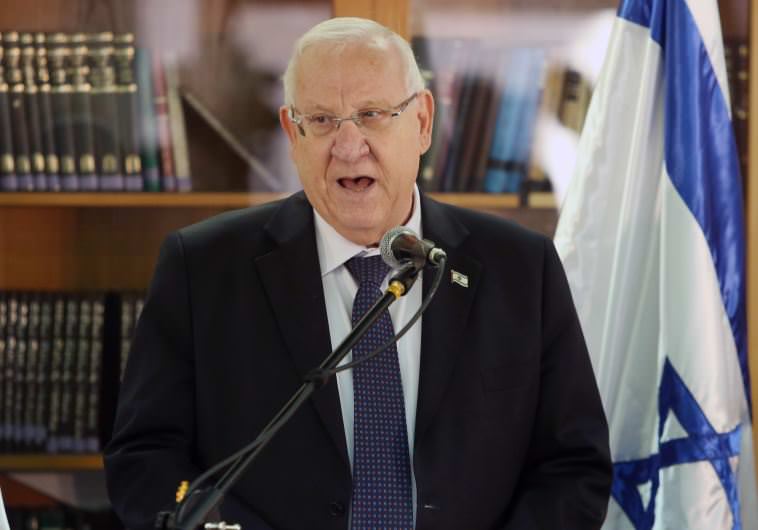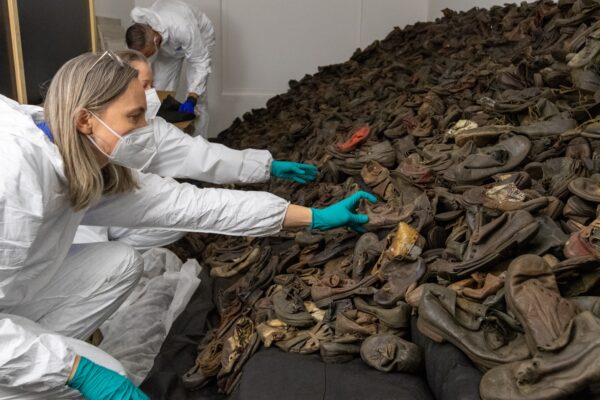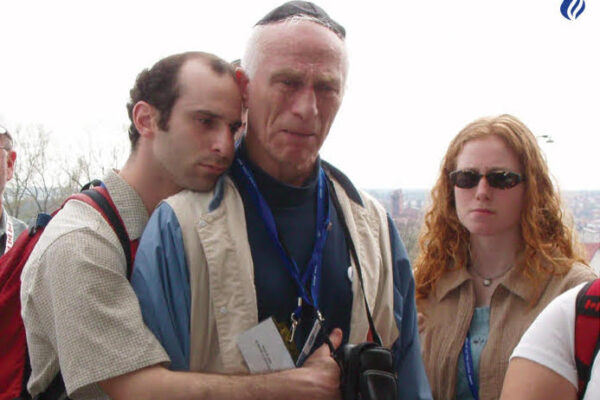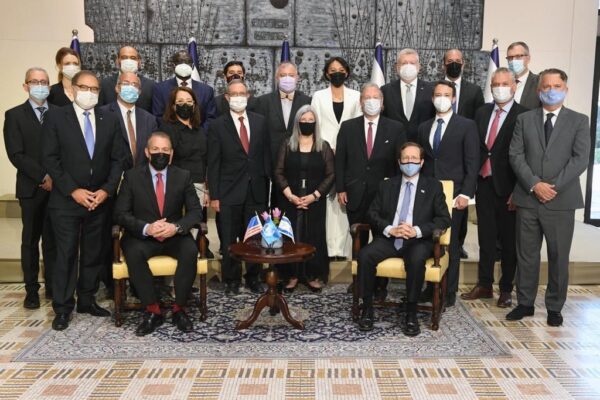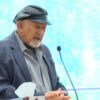President Reuven Rivlin . (photo credit:MARC ISRAEL SELLEM/THE JERUSALEM POST)
In a somewhat shocking opening statement to the Yad Vashem International Leadership mission that had just arrived from Poland to Israel, President Reuven Rivlin on Sunday said, “The State of Israel is not by any means a compensation to the Jewish people for the atrocities carried out against them in the Holocaust. Israel was not created because of the Holocaust,” said Rivlin.
“Israel exists because Jews have the universal right to national self-determination in their historical homeland.”
Rivlin explained that he himself is a seventh-generation Israeli whose family came from Lithuania in 1809.
Then, as if to soften the blow of his earlier remark, he said: “But we cannot and do not want to deny the central place of the Holocaust to our existence here today. In many ways, we all have a number on our arms. The Holocaust is present in so many aspects of our lives as individuals and as a society. The memory of the Holocaust shapes our commitment and dedication to be strong enough to defend our citizens from violence and terrorism. The memory of the Holocaust shapes our commitment to Jewish solidarity and to build our important relations with the Jewish Diaspora.”
Rivlin also spoke of the importance of Yad Vashem, whose mission he said, is to document, to remember, to educate and to build hope for the future while keeping the memory of the past.
It is also a testimony to the heroism of the Righteous among the Nations, and those Holocaust survivors who fought in the ghettos and in the camps as partisans and as soldiers.
Avner Shalev, chairman of the Yad Vashem Directorate, disclosed that before Rivlin went on his recent visit to Bulgaria, the Bulgarians had stated their intention of dedicating a monument to the Jews of Bulgaria who had been saved from deportation. However, they conveniently forgot the Jews of Macedonia, who had been sent to the death camps, said Shalev, adding that Rivlin had made this point and had made it clear that he would not participate unless the error of omission was corrected.
“We are at the crossroads of memory of the Shoah,” said Shalev, noting that “we are losing survivors every day.
In a reference to Nobel Prize laureate Elie Wiesel who died just over a week ago, and who survived Auschwitz and Buchenwald, Shalev said that Wiesel “symbolized a generation of survivors.”
Second-generation survivor Lenny Wilf, who is chairman of the American Society for Yad Vashem, spoke about the mission to Poland that he recently led. His three children participated with the group, visiting death camps and ghettos where relatives of most of the people on the mission had suffered unspeakable atrocities.
“The scars left an indelible mark on our souls,” Wilf said of the emotional experience in Poland.
Wilf also referred to Wiesel, calling him “a singular voice of humanity” and mourning the loss of “his unique status as the conscience of the world.”
Shalev presented Rivlin with a facsimile of the famous Stern Rosh Hashana prayer book.
Stern had been a 34-year-old cantor at Kehilat Yearim Synagogue in Satmar when he, his wife and children were rounded up by the Nazis. His wife and four children were sent to Birkenau. He never saw them again. Stern was sent to the Wolfsburg forced labor camp.
When Rosh Hashana was in the offing, Stern decided to conduct a service for the other Jewish prisoners, and wrote the prayers from memory.
He survived the war, and afterwards kept the faded and crumbling pages of his “prayer book.” In 1988, he brought them to Yad Vashem for safekeeping, and died a few months later in 1989.
The prayer book symbolizes both memory and hope.
Originally published HERE
